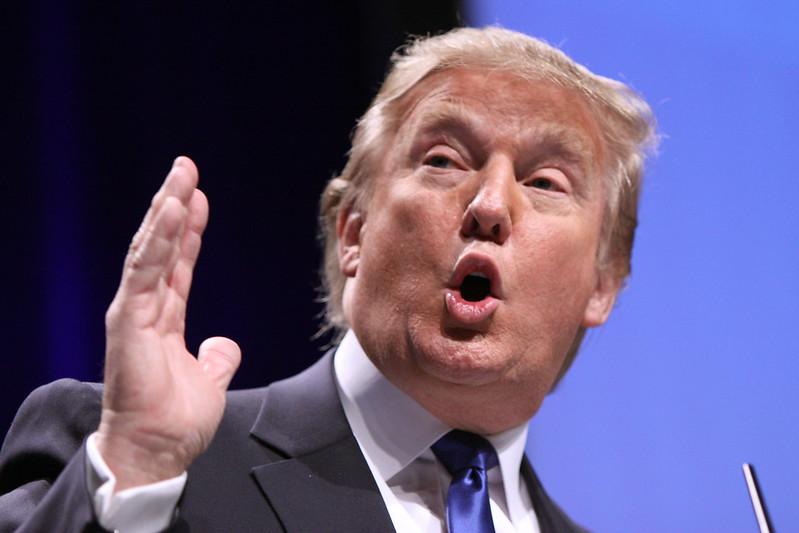Trump’s Eugenic Fantasies

“Donald Trump” by Gage Skidmore is licensed under CC BY-SA 2.0
On October 7, Donald Trump’s long-standing promotion of eugenics finally attracted widespread and prominent media attention. Here are a few examples, all posted just in the first hours after Trump’s harangue on a radio podcast about immigrants’ genetic propensity to murder:
- ‘Very sinister’: Trump stuns Republicans and Dems with on-air ‘bad genes’ rant, Kathleen Culliton, Raw Story, 10/7, 10:15 am
- Saying immigrants bring ‘bad genes’ echoes Trump’s history — and the world’s: With a mishmash of false claims about crime and ridiculous race science, Trump makes explicit the racism at the heart of his politics. Philip Bump, Washington Post, 10/7, 12:05 pm
- “Bad genes”: In latest racist attack, Trump says immigrants are genetically inferior: Trump, embracing eugenics, claimed immigrants are genetically predisposed to crime, Marin Scotten, Salon, 10/7, 12:58 pm
- What Word but Fascist Can Describe Trump’s Newest Rant on Migrants? Donald Trump went on a rant about the “bad genes” of certain migrants. Hafiz Rashid, The New Republic, 10/7, 1:09 pm
- Donald Trump Goes Off the Rails With Claim That Some Races Have Murder Gene: “We got a lot of bad genes in our country right now,” the GOP presidential nominee told radio host Hugh Hewitt, Daily Beast, 10/7, 1:31 pm
There are many more, ranging from the analytic to the loudly vituperative. At 6:24 pm, Fox News, in contrast, reported Trump’s comments as “Trump sounds alarm on illegal immigrant murderers,” and accused other media of misrepresenting their meaning.
The widespread slap-down of Trumpian eugenics and race science is heartening, but it’s remarkable that it took so long. Trump has been boasting about his own supposedly excellent genes for decades, as Maureen Dowd noted in April, citing a 1988 Oprah interview. Critics, including CGS, have been calling out his “racehorse theory” of breeding for years, though mainstream media have been somewhat reluctant to focus on it.
Trump himself pleads ignorance; he claims to have invented rhetorical tropes, such as “poisoning the blood of our country,” that can easily be traced back to Adolf Hitler. About whom he told the Associated Press last December:
“I know nothing about Hitler. I have no idea what Hitler said other than (what) I’ve seen on the news. And that’s a very, entirely different thing than what I’m saying.”
He also knows nothing about QAnon or David Duke or the Proud Boys or Reconstruction after the Civil War, and if someone had given him a book of Hitler’s speeches, a gift he cannot remember, he certainly would not have read them. (That last claim is plausible.)
For deeper discussion about these pernicious attitudes, not focused on Trump in particular, read the “Legacies of Eugenics” series, co-sponsored by CGS and the Othering & Belonging Institute, in the Los Angeles Review of Books. Four articles have been published so far, with more to come. The most recent, The DNA Dreams of the New Eugenics by Patricia Williams, is exactly on point:
One of the most efficient mechanisms for carrying eugenics forward is the conviction that its harms are securely locked away in the past. This proposition is so powerful that, even when present-day eugenic projects resurrect the worst aspects of that past with chilling exactitude, few seem to take the dangers seriously.



